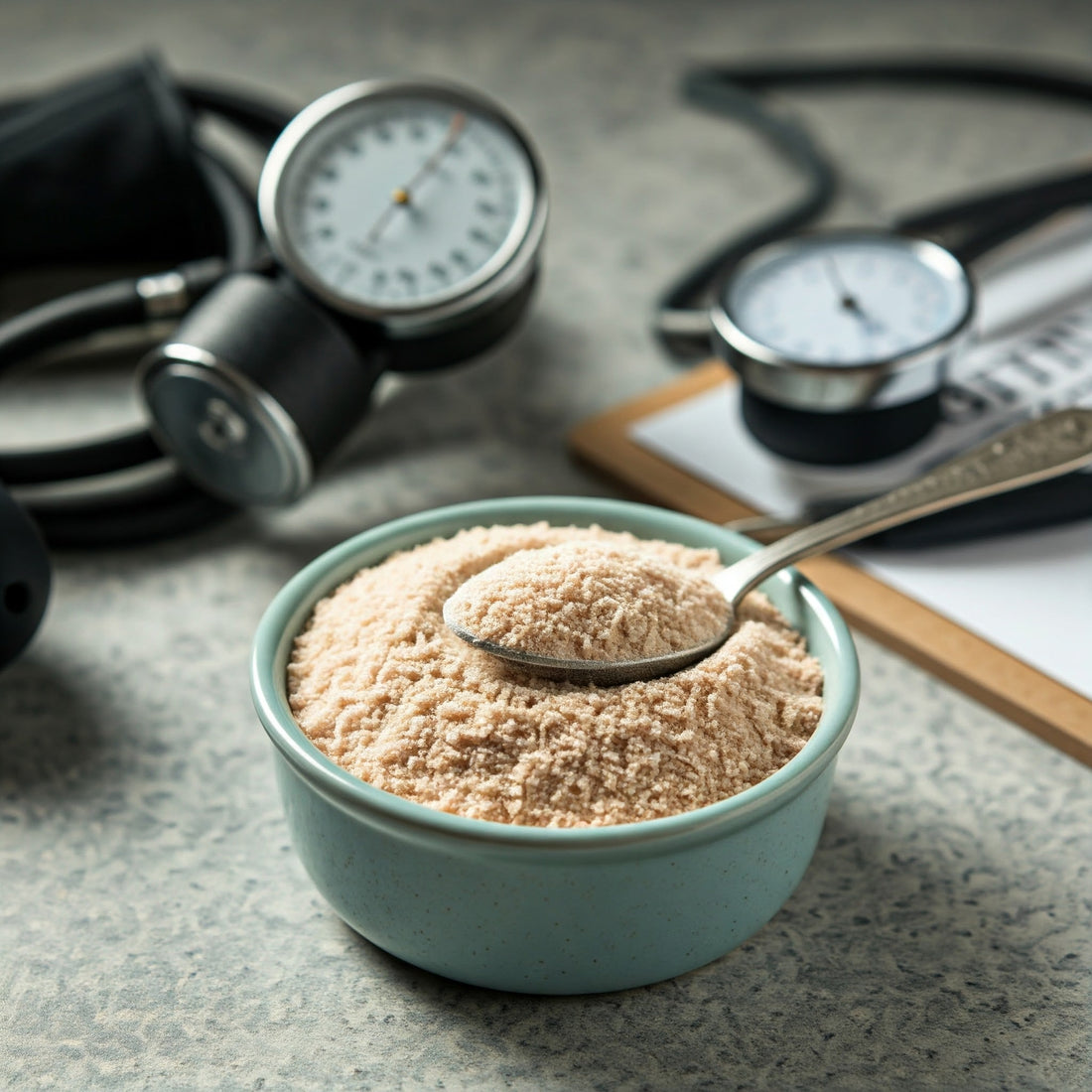
Psyllium Husk and Blood Pressure: New Research Reveals Its Cardiovascular Health Benefits
Share
Psyllium husk, a well-known soluble fiber, continues to make waves in the health and nutrition world. A new systematic review and meta-analysis published in Food Science & Nutrition has unveiled its potential role in supporting cardiovascular health, specifically in managing blood pressure. Let’s explore the findings of this exciting research and what it means for you.
The Study at a Glance
The research, titled "Effects of Psyllium Fiber on Blood Pressure: A Systematic Review and Meta-Analysis," analyzed data from multiple studies to understand how psyllium fiber impacts blood pressure. The authors reviewed controlled trials involving psyllium supplementation and its effects on systolic and diastolic blood pressure.
Key Findings:
- Reduction in Systolic Blood Pressure (SBP): Participants who consumed psyllium fiber experienced significant reductions in SBP, the pressure in arteries during heartbeats. Lower SBP reduces the risk of cardiovascular diseases like heart attacks and strokes.
- Improvement in Diastolic Blood Pressure (DBP): The study also found a notable decrease in DBP, which measures arterial pressure between heartbeats. Healthy DBP levels contribute to overall cardiovascular stability.
- Consistency Across Populations: The results were consistent across different demographics, indicating that psyllium fiber benefits a wide range of individuals.
- Duration Matters: The positive effects on blood pressure were more pronounced in trials lasting longer than eight weeks, suggesting that sustained psyllium consumption is key to seeing results.
Mechanisms Behind the Benefits
The study highlights several possible mechanisms through which psyllium husk may help regulate blood pressure:
- Reduction in Cholesterol Levels: Psyllium binds to bile acids in the intestine, promoting their excretion. This process lowers LDL cholesterol, reducing arterial stiffness and supporting better blood pressure control.
- Improved Insulin Sensitivity: By slowing the absorption of carbohydrates, psyllium helps maintain stable blood sugar levels, which are closely linked to healthy blood pressure.
- Gut Microbiome Interaction: Psyllium acts as a prebiotic, nourishing beneficial gut bacteria. A healthy gut microbiome is increasingly recognized as a contributor to cardiovascular health.
- Enhanced Weight Management: Psyllium's ability to promote satiety can lead to better weight control, another critical factor in maintaining optimal blood pressure.
Incorporating Psyllium Into Your Lifestyle
The research underscores the importance of consistent psyllium intake for long-term benefits. Here are some simple ways to include psyllium in your diet:
- Drink It: Mix psyllium husk with water, juice, or smoothies for a quick fiber boost.
- Bake It: Add psyllium to bread, muffins, or pancakes to enhance their fiber content.
- Supplement It: Use psyllium capsules or powders as directed by a healthcare provider.
Start with a small dose and gradually increase to avoid digestive discomfort. Drinking plenty of water is essential when consuming psyllium to prevent bloating or constipation.
What This Means for You
This study adds to the growing body of evidence supporting psyllium husk as a natural, accessible tool for improving cardiovascular health. Its ability to reduce both systolic and diastolic blood pressure makes it a valuable addition to the diets of individuals looking to manage their heart health naturally.
For those seeking to maintain or improve their blood pressure levels, incorporating psyllium into a balanced diet, along with regular exercise and a heart-healthy lifestyle, can yield significant benefits. While psyllium is not a substitute for prescribed medications, it serves as an excellent complementary approach to achieving overall wellness.
Access the Full Study
To read the full research paper, visit Food Science & Nutrition.
Disclaimer: Always consult a healthcare provider before adding psyllium or any new supplement to your diet, especially if you are managing chronic conditions or taking medication.
Disclaimer: The image featured in this blog post was generated by Gemini AI and is for illustrative purposes only. It may not accurately represent the actual appearance of psyllium husk powder or related wellness elements.

